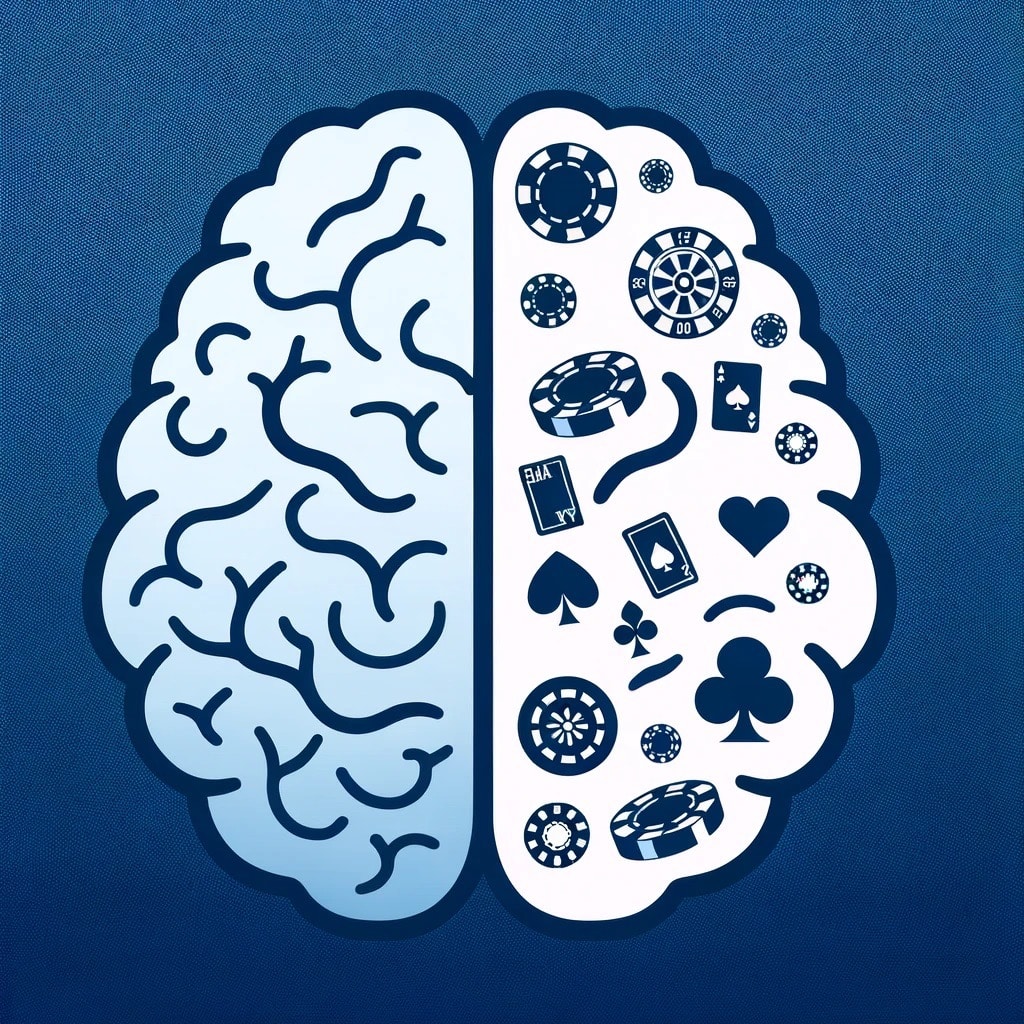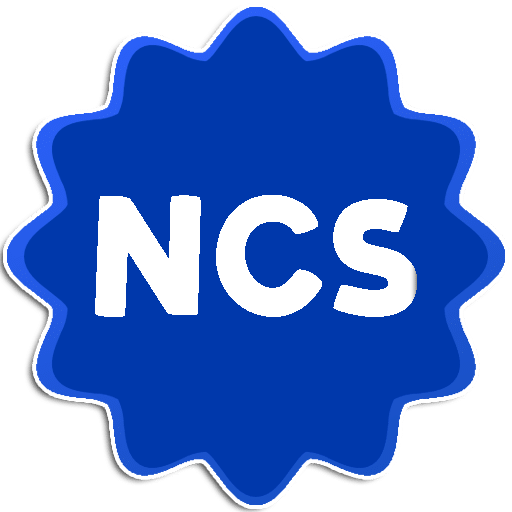The Brain on Gambling: Understanding the Neurological Impact of Gambling
Although enjoyed safely by millions, gambling poses serious mental health risks. It's intricately tied to the brain's response to wins and losses. This complex interaction deserves careful consideration.
In this article, we look into how gambling affects the brain, exploring the role of neurotransmitters, the psychological ploys of casinos, and why it can be so addictive.


The Neurobiology of Gambling
Gambling has a profound impact on the brain, engaging the reward system and unleashing a flood of neurotransmitters and hormones that influence our feelings, behaviour, and overall mental state.
Central to this process is dopamine, the neurotransmitter responsible for feelings of pleasure and reward. When we gamble, especially when we win, dopamine levels surge, creating a sense of euphoria and a strong desire to replicate the experience.
However, the story doesn’t end with dopamine. Other key players in the brain’s response to gambling include serotonin, cortisol, and adrenaline. Serotonin, often associated with mood regulation, tends to be lower in individuals prone to gambling addiction, leading to challenges in impulse control and a higher susceptibility to addictive behaviours.
Cortisol, the body’s main stress hormone, spikes during gambling activities, contributing to a heightened state of alertness and excitement, while adrenaline adds to the thrill, keeping us engaged and eager for the next bet.
The constant stimulation from gambling leads to a state of hyperarousal, where the brain is primed for action and the pursuit of rewards. This heightened state of arousal, combined with the pleasure derived from dopamine, creates a potent mix that can lead to a relentless desire to continue gambling, even in the face of losses.
Over time, these neurobiological changes can have significant long-term effects. The brain’s reward system becomes desensitised, requiring more dopamine to achieve the same level of satisfaction, leading to an increased tolerance and a potential escalation in gambling behaviour.
Additionally, constant exposure to high levels of cortisol and adrenaline can pose serious health risks, particularly for those with pre-existing conditions such as heart disease or diabetes. Understanding these neurobiological impacts is crucial for mitigating the risks associated with gambling and promoting healthier engagement with this widespread activity.
Understanding Online Gambling Psychology and Manipulation
Online gambling captivates you with its convenience and immersive experience, but it also brings a slew of psychological effects and perception distortions. Post-gambling, emotions can swing wildly, affecting decision-making and impulse control.
Virtual casinos excel at creating environments that manipulate perceptions to keep players betting. Bright graphics, enticing sounds, and clever game mechanics create a captivating experience, with slot machines specially designed to trick the brain into seeing losses as near-wins, fuelling the desire to play on.
This is most evident in online slots, where even small payouts are celebrated extravagantly, creating a false sense of success. This sensory trickery targets the brain’s reward centre, making you feel like a winner even when you’re losing, potentially leading to gambling addiction.
Recognising these manipulations is crucial for players and regulators alike, highlighting the need for responsible gambling and protective measures to safeguard mental well-being.
Recognising and Overcoming Gambling Addiction
Gambling addiction, or pathological gambling, is a severe behavioural addiction marked by an overwhelming urge to gamble. This widespread issue affects millions in the UK alone.
Continuous gambling can alter the brain similarly to substance addiction, strengthening neural pathways and creating a feedback loop of addictive behaviour. This can lead to a reduced ability to resist gambling, even when facing negative outcomes.
The prefrontal cortex, crucial for decision-making and impulse control, is significantly impacted, leading to impaired judgment and rationality. The ventral striatum, tied to the brain's reward system, also changes, increasing cravings and altering reactions to losses, making breaking free from addiction challenging.
Early recognition of gambling addiction signs is vital for timely and effective intervention. Warning signs include a constant focus on gambling, escalating gambling expenditures, failed attempts to quit, and persisting in gambling despite adverse effects. Awareness and proactive measures from individuals and their support networks are crucial.
Professional help is essential in overcoming gambling addiction. Specialists in addiction offer necessary support and resources, helping individuals break the addiction cycle and regain control. Highlighting the importance of professional assistance underscores gambling addiction's severity and ensures resources are accessible for those in need.
Top Tips for Responsible and Safe Gambling Practices
Gambling offers entertainment for many, but it's vital to engage responsibly to avoid its potential pitfalls. Responsible gambling means knowing the risks, setting strict limits, and staying alert for signs of addiction.
Effective strategies include imposing clear boundaries on money and time spent gambling, maintaining control, and making thoughtful decisions. Regular breaks are crucial, providing moments to reflect and choose wisely.
Early recognition of addiction signs - such as constant thoughts about gambling, chasing losses, and hiding gambling activities - is essential for timely intervention. Prompt action and seeking help can lead to successful recovery.
Support networks, including friends, family, and professionals, are invaluable in overcoming addiction, offering encouragement and guidance. Numerous resources and support groups are available, providing confidential assistance.
Raising public awareness and educating about gambling’s brain impacts promotes safer gambling habits. Campaigns and educational programs equip you with the knowledge to make informed choices, ensuring gambling remains a safe activity.
Final Thoughts
The brain's reward system, vulnerable to gambling's allure, can lead to a rollercoaster of emotions, from euphoria to despair.
The psychological effects of gambling stretch wide, influencing mood, decision-making, and self-control. Casinos cleverly manipulate environments and game designs to keep players hooked, while the illusion of near-wins keeps us chasing that elusive jackpot.
Gambling addiction is a pressing issue, altering key brain areas and trapping individuals in a cycle of addiction. Early recognition and professional help are vital for breaking free. Adopting responsible gambling habits, being aware of addiction signs, and utilising support networks are key to maintaining control and aiding recovery.
Additional Resources
As we conclude our discussion on the intricate ways gambling affects the brain, it’s crucial to have the right resources at hand for support and recovery. We’ve organised a comprehensive list of tools and guides to aid you and your loved ones on this journey:
- Recovery from Gambling Addiction: Start your journey away from gambling with this essential guide.
- Confronting Addiction Denial: Learn how to recognise and tackle denial in gambling addiction.
- Gamblers Anonymous: Peer Support: Find community and support through Gamblers Anonymous.
- GamCare: Professional Support: Access expert advice and resources via GamCare.
- Activities to Break Free: Engage in positive activities to divert your attention from gambling.
- Protecting Children from Gambling: Implement strategies to safeguard children from gambling's risks.
- GAMSTOP: Self-Exclusion: Discover how GAMSTOP can assist in your self-exclusion efforts.
- Self-Exclusion Resources: Explore additional tools to help enforce your self-exclusion decision.
- Gamblock: Blocking Software: Use Gamblock to prevent access to gambling sites.
- BetBlocker: Blocking Software: Another option to block access to gambling content.
- Gamban: Device Protection: Protect all your devices from gambling content with Gamban.
- BetFilter: Stop Online Gambling: Utilize BetFilter to eliminate online gambling temptations.
- NetNanny: Safe Browsing: Ensure a secure online environment with NetNanny.
Leverage these resources to build a strong support network and arm yourself with the knowledge needed to overcome gambling addiction.

